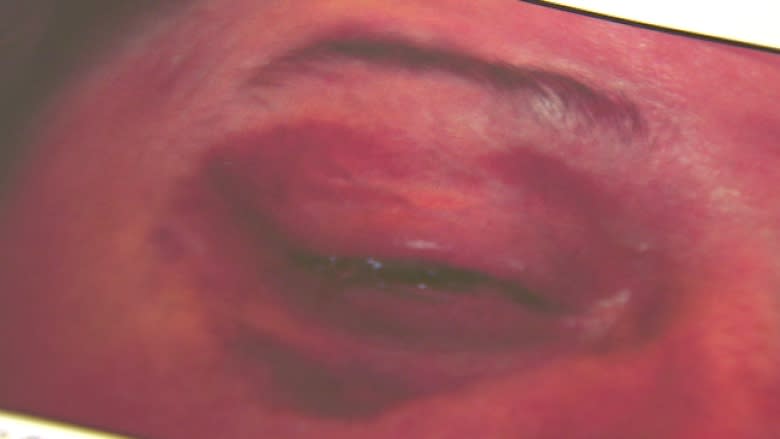Conviction tossed for man accused of smashing wife with beer bottle
A Paradise man who was jailed for smashing a beer bottle into the eye of his wife had his conviction tossed on Wednesday.
The Court of Appeal ruled this week that the judge who convicted Jason Churchill acted inappropriately throughout the man's trial — and seemed to have been helping the case of the prosecution.
In his decision, Justice Charles White described how Justice Raymond Halley intervened in the case by giving prosecutors tips, helping Churchill's wife on the witness stand, and made "dismissive" comments about Churchill's lawyers during trial.
"Overall, the conduct of the judge crossed the line," wrote White.
"There are several instances when the trial judge interrupted counsel in an inappropriate manner, which had the effect of undermining counsel's ability to effectively cross-examine."
Domestic dispute
Churchill was sentenced to just under two years in jail last October after the the Newfoundland and Labrador Supreme Court found him guilty of aggravated assault.
The man's wife, Joan Barry, alleged that Churchill hit her in the right eye with a beer bottle during an argument, smashing the bottle and damaging her cornea.
Churchill suggested to the court instead that Barry likely fell while she was intoxicated during the argument in their shed, and hit her eye on one of the many objects in the room.
However, according to the appeal court's decision released this week, Justice Halley interrupted "whenever defense counsel pursued any line of inquiry considering [Barry's] state of intoxication."
At one point, the judge commented with a "dismissive tone" to questions from Churchill's lawyers about Barry's drunkenness, that according to the decision, signaled to Barry the questioning "was not to be taken seriously."
"When taken together, I would conclude that [all interruptions] disrupted the flow of counsel's cross-examination, and undermined his authority in the eyes of the witness," White wrote.
Comforting the complainant?
The appeal court found that the judge prevented Churchill's lawyers from offering a full defense, created an environment where it would be reasonable to feel bias from the judge and overall made the trial unfair.
Churchill's conviction was set aside, and a new trial has been ordered in the case.
All three Court of Appeal justices signed on to the ultimate decision.
Justice Malcolm Rowe added in a comment that he felt Halley was trying to shield Barry from further pain.
"From reading the transcript, it is clear that the trial judge sought to limit the impact on the complainant, who was physically injured and emotionally vulnerable, of a vigorous cross-examination," he added.
"That is an understandable human response, but one that a judge must check."




